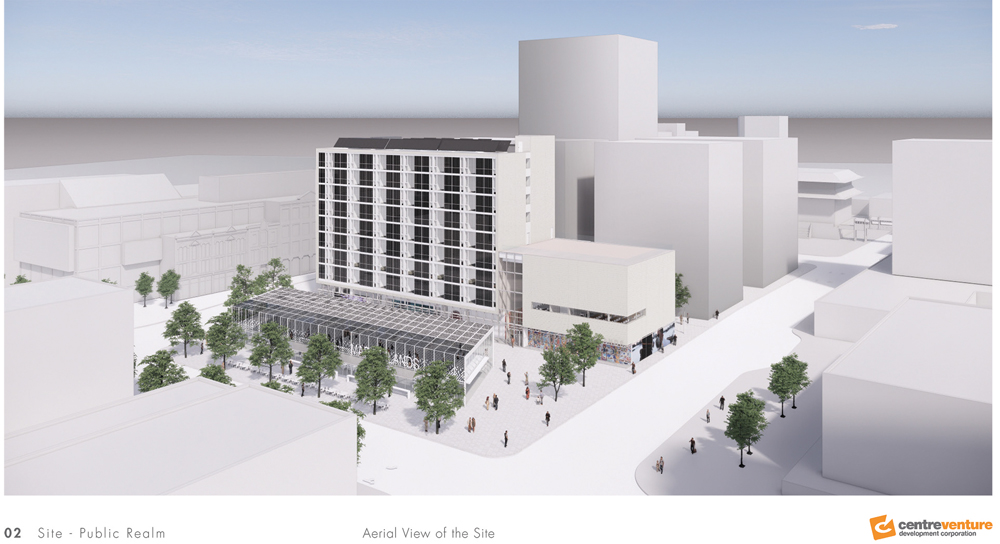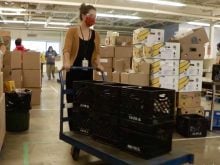The industry group representing agri-food processors in the province hopes to fill a hole they say has been limiting the ability for Manitoba-based food products to get on the shelves.
Food & Beverage Manitoba (FaBMB) is working hard to establish a food-development centre to help small and medium-sized processing businesses bring their products to market.
“We’re working on developing a support ecosystem for small- and medium-sized businesses,” said Michael Mikulak, the group’s executive director.
Read Also

Tie vote derails canola tariff compensation resolution at MCGA
Manitoba Canola Growers Association members were split on whether to push Ottawa for compensation for losses due to Chinese tariffs.
Why it matters: The industry group argues that when the Food Development Centre in Portage la Prairie shifted towards a more protein-specific mandate in 2021, it left a gap for local processors wanting to test and commercialize products.
Mikulak said they want to target businesses developing new products, but don’t have access to the knowledge and equipment needed to get them to the next level.
“It’s for businesses looking to scale up,” he said. “It is to help companies going from a couple of retail stores — maybe a few farmers’ markets — and [who are] looking for a path to get into maybe dozens of retail outlets, or to start thinking about interprovincial trade and maybe even export outside of the country.”
According to a food ecosystems study commissioned by FaBMB, there’s a dearth of this type of support in Manitoba.
“There are currently very few pathways to support food SMEs [small and medium-sized enterprises] from startup to scale-up to commercialization and consumer engagement and uptake,” the report read.
It suggested that other jurisdictions aren’t facing the same issues. Other provinces boast “well-financed food development centres” that work with burgeoning processors, it found, pointing to sites like the Leduc Food Processing Development Centre in Alberta or Saskatchewan Food Centre.
“Those facilities offer expertise in agri-food and process development, production and processing capacities, skills development, food safety education and training, quality assurance and technology transfer,” the report authors said.
The local toolbox
There are resources in Manitoba providing some of that support, such as commercial kitchens and co-packaging facilities.
The FaBMB report argued, however, that while these facilities are excellent resources, they often “lack the necessary equipment, food safety and health certifications, sufficient space and on-site or multi-day shared storage, transportation, processing and distribution capacity to adequately support SMEs.”
Red River College has its Prairie Research Kitchen, which was established in 2019 and offers a long list of services to its customers. But they don’t quite bridge that gap either, in the industry group’s view.
“It is a great facility. They work with a lot of our members to do all sorts of things, but they have nowhere to send people after they’re done with their tests,” said Mikulak.
Historically, the Food Development Centre in Portage la Prairie provided some of those supports. Two years ago, however, the centre reduced its mandate to focus mainly on protein processing. According to the FaBMB report, when that mandate changed, local food processing startups took a big hit.
“It was a valuable starting point for product development in the burgeoning food sector,” the report read, adding that the centre “now focuses on larger companies closer to the stage of commercialization — at the expense of small-scale innovation.”
That shift left small-scale food processors scrambling. Without the Food Development Centre in their corner, the choice was between setting up a processing facility or going out of province for scale-up services, FaBMB argues.
“This is why we’re working on this,” said Mikulak. “Building your own plant is very expensive. You need to have a plan; you need specialized equipment; you need staffing and all that kind of stuff.”
Businesses that have a good recipe, “don’t have access to the capital,” to get it market ready, “but they also don’t have enough understanding of what the market is like. And that’s what these incubation centres do; that’s the role they play,” he said. “They de-risk a lot of that for people, and it allows [businesses] to begin that scale-up process and build up those skills before they invest hundreds of thousands of dollars into a plant.”
While the Food Development Centre has shifted out of that incubation space, Mikulak said he’s still been working closely with them to ensure FaBMB isn’t duplicating services already offered by the facility.
“They’re still trying to figure out what they’re going to be doing moving forward. So what we’ve suggested to them is that we focus in on these kinds of micro-enterprises,” Mikulak said.
The effort to avoid duplication of services applies to all the other facilities in the province as well.
Progress
FaBMB says they have made a lot of progress towards establishing the new centre since the Portage facility’s shift.
“We’re a fairly small team, but I think we punch above our weight in terms of what we can do,” said Mikulak. “We’re way past the advocacy stage.”
The group has secured significant funding for their project, including a promise of $3 million from Winnipeg-based economic development firm CentreVenture Development Corporation.
Mikulak estimates the final cost of the project will be around $15 million.
“We have to get into a little bit more details and work with the architect to figure out the different components, but it’s in that ballpark,” he said.

While they have a long way to go to raise those funds, Mikulak remains optimistic.
“We’ve got a lot of the funders very interested and wanting to go to the next step,” he said
They also have a location picked out: the Marketlands development on Princess Street in Winnipeg.
Mikulak says he hopes to put shovels in the ground for the new facility by the fall 2024. Marketlands is a cluster development, and there are two other projects going into the south site where FaBMB intends to build.
The first two are scheduled to break ground this fall. The food-development facility is the smallest of the three.
Historically, Mikulak noted, the site has long had a connection to Manitoba’s food production industry, being the location of Winnipeg’s first farmers’ market.
Also, he said, “We’d be working with Red River College and their programming at the prairie research kitchen. That’s one of the reasons we’re really excited about this location… it is literally across the street.”
Red River College’s culinary arts and food safety programs are located on the college’s downtown campus on Princess Street.
Mikulak said the new facility will bring the potential for work-integrated learning with the college.
“So imagine you’re a small company and you’re trying to figure out how to scale up and get to that next phase. It can be really difficult to hire the kind of qualified staff that understands food safety because you only need them for 10 hours a week,” he said. “If we’re in partnership with Red River, we can actually have a pool of qualified students looking for that work experience who have already been trained and who can provide that support to those entrepreneurs.”
But Mikulak said the location in Winnipeg’s Exchange District also positions the facility to open other doors in the surrounding community.
“You have opportunities to work with equity-seeking groups, so you can work with things like newcomer agencies and Indigenous groups to promote careers and entrepreneurship opportunities there,” he said.
All of this is still tentative. Without the funding fully in place yet and with an election looming, funding delays could become a reality, and Mikulak recognizes that the process could be years in the making.
That said, he argued that there is awareness of the need for such a facility among the project’s major funders.
“It it’s really about figuring out the details of what we do and who’s going to pay for what,” he said.
“The trick is always that very few grants pay for buildings,” he added. “They’ll pay for build-outs, but bricks and mortar is trickier to fund. So our next step is to figure that out.”
















